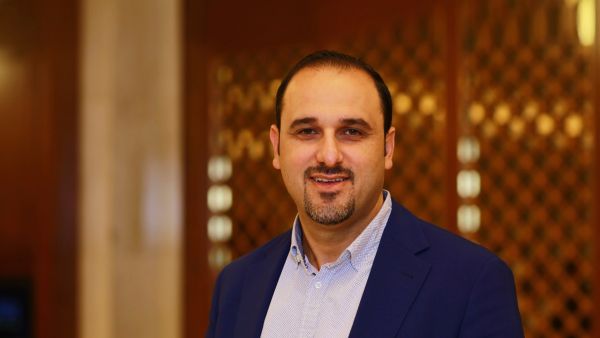EY: 74% of MENA finance leaders are Involved in the Environmental, Social and Governance (ESG) Agenda

According to the EY MENA Financial Accounting Advisory Services CFO survey report, finance leaders must take a leading role in driving the Environmental, Social and Governance (ESG) agenda, and focus on transforming the finance function through technology, data and analytics.
The report, which surveyed 120 MENA CFOs, outlines that 74% of finance leaders are involved to a medium, high or a significantly high extent in driving ESG, and 59% say that advancing their digital and automation capabilities is a high priority. These results are in line with the EY 2020 survey where 56% of finance leaders said that advancing their digital and automation capabilities will be a high priority once the COVID-19 crisis subsides. The report also highlights that finance leaders should look at how their organizations can create long-term value for society, people, customers, and partner with other business leaders to define and report on it. These results come at a time when the finance function is navigating a mixed business landscape with growth and value creation ambitions on one hand, and the need to manage risk and uncertainty to protect value on the other.
ESG is essential to value, and core to the finance leader’s agenda
As the link between ESG and enterprise value becomes more established, investors, regulators and other stakeholders are increasingly expecting organizations to have a solid ESG strategy that creates value and manages risks, and also communicate it through reliable and trusted reporting. The survey demonstrated that finance leaders are aware of this trend, with 73% saying that external reporting will begin to provide forward-looking information in areas such as strategy, sustainability and how risks are being managed, and more than 50% noting that regulators’, investors’ and other stakeholders’ expectations will have a high impact on their organizations’ move to nonfinancial reporting. The report also outlines that ESG extends beyond a reporting and regulatory exercise; it creates value for organizations by attracting investors, unlocking access to capital markets and tapping into new markets and customer segments. ESG also optimizes value by driving resource efficiency across the value chain, and protects value by managing risks and complying with regulatory reporting requirements.
Khurram Mian, EY MENA Assurance Leader, says:
“ESG is essential to value, and finance leaders will have critical roles to play throughout its roadmap, from partnering with other parts of the business in setting ambition and ESG strategy, contributing to the execution across the value chain, through to leading ESG reporting and building trust with key stakeholders. By drawing on their wealth of experience in leading financial reporting, finance leaders are also well placed to establish effective governance and controls over non-financial and ESG reporting.”
Transform finance with a focus on technology, data and analytics
With 80% of survey responders already prioritizing enterprise resource planning (ERP) initiatives, and 59% saying that advancing data and analytics capabilities is a high priority, finance leaders are laying the foundations for a new finance operating model, one that leverages digital to drive value creation. However, there are challenges – 44% of MENA finance leaders still need to unlock the full functionality of ERP, upgrade to latest releases or fully align their finance systems.
The report also highlights that finance leaders will benefit by unifying finance systems, upgrading to more up-to-date releases and automating end-to-end accounting and reporting cycles. As finance leaders also recognize the need to advance data and analytics capabilities, they should look to establish a formal enterprise-wide, robust data governance and control framework, and leverage AI and advanced analytics to create structured data that can be accessed and analyzed in real-time, while providing predictive analytics where required.
The need to advance digital creates the business case for finance leaders to evolve the finance delivery model. Instead of delivering almost all activities in house, finance functions will benefit by evolving to models that combine in-house capabilities with external ones, such as those offered by managed services. These hybrid platforms unlock access to innovative technologies and methodologies that are difficult to acquire or develop in house.
Redefine what long-term value means and the role that finance can play
Unsurprisingly, the financial dimension of long-term value remains the highest priority for finance leaders, with 94% of respondents considering financial value to be a high priority.
Omar Odeh, EY MENA Financial Accounting Advisory Services (FAAS) Leader commented:
"Long-term value goes beyond financials and investors recognize this. It is about sustainable and inclusive growth that benefits all stakeholders. That’s the real bottom line, and finance functions will need to deliver and report on it. Collaboration with other business leaders will be critical. There should be a common understanding across the organization of how each value dimension — financial, customer, people and societal — contributes to long-term value and which KPIs should be measured and reported.”
The report therefore provides a call-to-action for finance leaders to broaden their focus from purely financial metrics to also focus on people, societal and customer value and deliver on the promise of long-term value creation. Moreover, 72% of responders say that in the coming three years, external reporting will increasingly extend beyond financial metrics and focus on the needs of a broader range of stakeholders, such as impact on the environment and measures of organizational health.
To read the full report, please visit: From value protection to long-term value creation, how can CFOs reframe finance? (ey.com)
Background Information
Ernst & Young
In addition to cookies that are strictly necessary to operate this website, we use the following types of cookies to improve your experience and our services: Functional cookies to enhance your experience (e.g. remember settings), Performance cookies to measure the website's performance and improve your experience, Advertising/Targeting cookies, which are set by third parties with whom we execute advertising campaigns and allow us to provide you with advertisements relevant to you, Social media cookies, which allow you to share the content on this website on social media like Facebook and Twitter.






